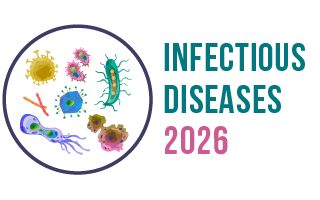4th International Conference on
Infectious Diseases
September 09-10, 2026 | Barcelona, Spain

Infectious Diseases 2026

Kurdistan University of Medical Sciences, Iran
Abstract:
The rapid advancements in the medical field have brought about numerous challenges for doctors and medical students, particularly concerning their rights and those of their patients. It is essential to clearly define and establish the legal boundaries for these groups within the medical system and education. An expanded curriculum that incorporates national medical textbooks tailored to local cultural, religious, and judicial laws is a practical solution to address these issues. Historically, the medical profession has faced numerous complaints, notably during the COVID-19 pandemic in 2020, highlighting the need for improved legal awareness among medical practitioners. By educating medical students about their rights and those of patients, service efficiency can be improved, errors reduced, and complications minimized. This preventative educational measure would develop students’ scientific reasoning abilities and familiarize them with common legal and medical errors. Effective communication skills and awareness of cognitive biases are critical, as many medical errors result from deficiencies in these areas. Supporting dual degrees like MD/JD can further benefit doctors by providing comprehensive training in both medical and legal fields, thereby enhancing healthcare outcomes and patient safety. Such an integrated curriculum promotes professionalism, trust in the judicial system, and case-based learning. Medical law education should ideally be introduced during medical students’ internship periods and residency programs, as general practitioners often face the most complaints. Applying situated-learning theory through court-based learning, where law students specializing in medical law observe actual malpractice trials, has proven effective. This approach enables clinicians to distinguish between legal and illegal issues, making medical law a practical and essential subject. Enhancing the curriculum in this manner addresses a significant societal need and improves overall healthcare delivery.
Biography:
Hasanabadi Parsa is an MD candidate at the Kurdistan University of Medical Sciences, where he has been excelling academically since 2020. A top student in his class, Hasanabadi achieved the 4th rank in the university's basic sciences exam and has consistently ranked among the top students in subsequent semesters.
